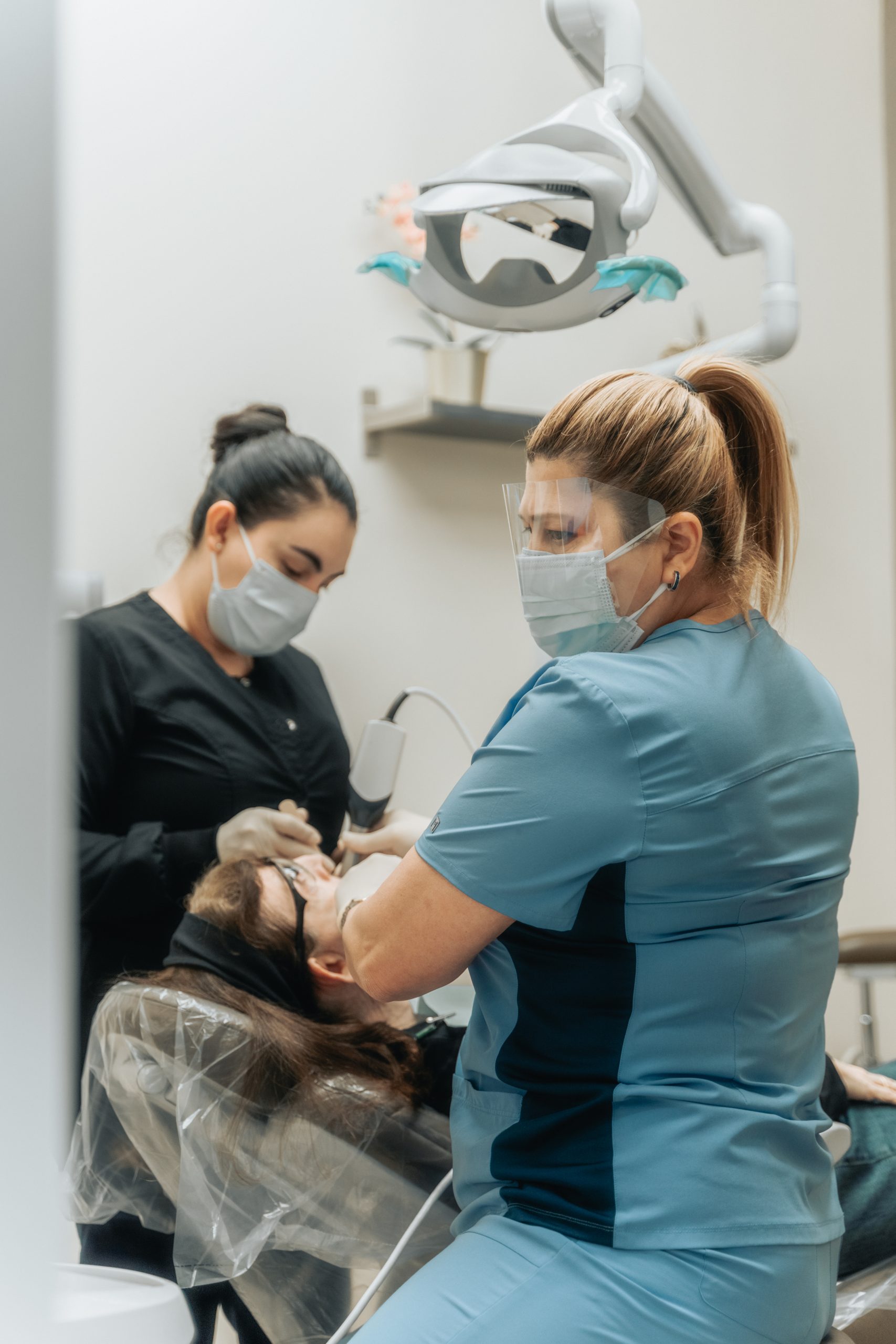Recognizing How Dental Practitioners Attend To Usual Oral Health Issues
Dental practitioners use a diverse technique to manage common dental health and wellness problems, utilizing analysis methods such as visual inspections and X-rays to spot cavities, gum disease, and tooth sensitivity. Stressing preventative treatment, dentists additionally give tailored advice on maintaining oral hygiene. Just how specifically do these methods assemble to guarantee optimal oral health?
Diagnosing Tooth Cavities
Diagnosing tooth cavities entails a precise examination of the teeth, using both aesthetic assessments and progressed diagnostic devices. Dental experts start with a thorough aesthetic analysis, searching for staining, visible holes, or various other indications of degeneration on tooth surfaces. They might utilize a dental mirror and traveler to find soft areas or areas that might show demineralization.
In enhancement to aesthetic examinations, dental experts often employ innovative analysis devices to enhance accuracy. Digital radiographs, or X-rays, are essential in recognizing dental caries that are not visible to the naked eye, such as those between teeth or below existing dental work. These pictures give detailed insights into the extent and place of decay, enabling specific therapy preparation.
Some practitioners also use laser fluorescence devices, which discover modifications in tooth structure by determining just how much light is shown back from the tooth surface area. This technique can determine early-stage tooth cavities that may not yet be visible or obvious with standard ways. Regular dental check-ups and using these analysis methods are vital in catching dental caries early, thereby protecting against further decay and maintaining total oral health.
Treating Gum Tissue Condition
While identifying dental caries is an important element of oral wellness, it is similarly essential to address gum tissue illness, another widespread dental issue. Gum tissue condition, or periodontal condition, is mainly caused by the buildup of plaque, a sticky film of microorganisms on the teeth and periodontals. If without treatment, it can progress from gingivitis, a moderate form, to periodontitis, a much more severe condition that can lead to tooth loss and systemic wellness problems.
The first treatment for gum tissue disease frequently entails non-surgical techniques. Scaling and origin planing, a deep cleaning treatment, is typically used to eliminate plaque and tartar from beneath the gumline. Antibacterial drugs may likewise be prescribed to decrease microbial load.
For sophisticated instances, surgical interventions could be necessary. Treatments such as flap surgery, where periodontals are lifted back to get rid of tartar deposits, or bone and tissue grafts, which intend to regenerate damaged areas, are used to recover oral wellness.
Ongoing maintenance is crucial in managing periodontal illness. Dentists recommend routine dental examinations, expert cleansings, and attentive home treatment techniques, consisting of cleaning, flossing, and making use of disinfectant mouth wash. Early discovery and regular monitoring are vital to avoiding the progression of this common yet serious dental problem.
Taking Care Of Halitosis
Foul-smelling breath, additionally called bad breath, often impacts individuals and can be a source of significant social discomfort and anxiety. Dental professionals play a crucial role in diagnosing and handling this problem by recognizing underlying reasons and suggesting suitable treatments.
The etiology of bad breath is multifactorial, with poor oral hygiene being a primary factor. Bacterial plaque accumulation on the teeth and tongue, food fragments, and completely dry mouth are typical offenders. eugene dentist. Dental practitioners usually start administration by recommending patients on reliable dental hygiene practices, consisting of routine brushing, flossing, and using antibacterial mouthwashes

Additionally, way of life and nutritional elements, such as cigarette use and usage of certain foods, may aggravate foul-smelling breath. Dental practitioners offer tailored guidance on nutritional modifications and cessation of unsafe behaviors. Collaboration with various other doctor might also be required if systemic problems, such as respiratory system infections or gastrointestinal disorders, are thought factors to bad breath.
Addressing Tooth Sensitivity
Dealing with dental wellness expands past managing foul-smelling breath to include conditions like tooth sensitivity, which can dramatically influence daily life. Tooth sensitivity, characterized by discomfort or pain in response to stimuli such as warm, cool, sweet, or acidic foods and drinks, often results from exposed dentin or receding gums. Dental experts use a diverse technique to handle and alleviate this condition.
First, a complete assessment is necessary to determine the underlying reason, which might vary from enamel disintegration to gingival economic downturn. Based on the diagnosis, therapy can entail desensitizing agents like fluoride gels or varnishes, which strengthen tooth enamel and reduce level of sensitivity. Furthermore, dental experts may advise specifically developed tooth paste for delicate teeth, including substances like potassium nitrate or stannous fluoride to obstruct pain signals.

Preventive Dental Care
Identifying the importance of precautionary oral care is vital for maintaining long-lasting dental health and wellness. Preventative care includes a range of practices focused on protecting against the onset of dental conditions and conditions. Routine oral examinations, commonly recommended every six months, are basic to this strategy. During these check outs, dental practitioners execute extensive cleanings, eliminating plaque and tartar that are past the reach of regular brushing and flossing.
Additionally, preventive care consists of check the application of fluoride therapies and oral sealers, which supply an additional layer of security against dental cavity. Fluoride reinforces the enamel, making it extra immune to acid assaults, while sealants work as an obstacle on the chewing surfaces of the back teeth, where decay frequently begins.
Education and learning is a substantial part of preventative dental care. Dental experts and hygienists enlighten people on correct cleaning and flossing strategies, the relevance of a well balanced diet regimen, and the influence of way of living selections such as smoking cigarettes and sugar consumption on dental health and wellness.
Verdict

Dental practitioners employ a diverse strategy to manage typical dental health problems, making use of analysis techniques such as visual examinations and X-rays to spot tooth cavities, gum tissue disease, and tooth sensitivity.While identifying cavities is a vital facet of dental health, it is equally essential to attend to gum tissue condition, basics another prevalent dental issue. eugene dentist. Dental professionals may carry out a detailed dental assessment to recognize possible concerns such as gum illness, dental cavities, or oral infections. By dealing with tooth sensitivity comprehensively, dental professionals aid patients achieve better convenience and keep ideal oral health
Emphasizing preventive treatment and individualized recommendations, dental professionals play a vital duty in keeping ideal dental wellness and alleviating lifestyle-related dental problems.